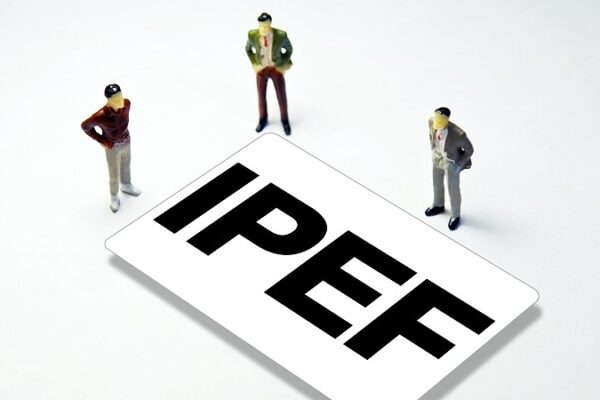Australia is about to play host to negotiators from 14 countries involved in the Indo-Pacific Economic Framework (IPEF) negotiating round in Brisbane from 10 to 15 December 2022. Together, IPEF members represent over 40% of global GDP and, for Australia, eight of Australia’s top ten trading partners. They include the United States, Australia, Brunei, Fiji, India, Indonesia, Japan, South Korea, Malaysia, New Zealand, the Philippines, Singapore, Thailand and Vietnam – but not China.
Seven of them are RCEP-countries – Australia, Brunei, Japan, Malaysia, New Zealand, Singapore, and Vietnam – who are also signatories of the Comprehensive and Progressive Agreement for Trans-Pacific Partnership (CPTPP), formally known as just the Trans-Pacific Partnership or TPP. The other CPTPP signatory countries that are not in the RCEP include: Canada, Chile, Mexico, and Peru.
IPEF is described the Australian Department of Foreign Affairs and Trade (DFAT) as a modern regional arrangement to build cooperation and economic integration in the Indo-Pacific.
On 09 September 2022, Australia joined 13 other IPEF members from across the Indo-Pacific region to launch negotiations across four core pillars of the framework:
- trade, in which there will be a general commitment to boost trade among members while recognising labour rights, environmental and other concerns
- supply chains, aimed at diversifying away from China and facilitating cooperation among members in the event of major disruptions
- clean economy, in which there will be recognition of the role of incentives in encouraging energy transitions
- fair economy, in which the members commit to preventing and combating corruption and tax evasion.
India has opted out of the trade pillar but says it will sign up to the other pillars.
IPEF may offer no immediate trade benefits for Australia, but for developing countries it will offer the prospect of US energy and other projects as an alternative to China’s One Belt One Road initiative.
The US wants to use it to diversify its supply chains away from China towards its allies and create US-style rules in a region encompassing the Indian and Pacific Oceans and extending from the east of Africa to the west of the United States. At the launch of negotiations in May the US said the agreement would enable the United States and our allies to decide on rules of the road that ensure American workers, small businesses, and ranchers can compete in the Indo-Pacific.
The Australian government’s policy promises more transparent and accountable trade negotiations, including access to negotiating texts and independent evaluation of their costs and benefits.
It has promised this for the IPEF, and both civil society and business organisations have been invited to present their views to IPEF negotiators in Brisbane. But this will be a one-way street because Australia and other IPEF countries have signed agreements with the US pledging to keep all negotiating documents secret until five years after the negotiations.
So, it is a strategic balancing act for Australia – we are a US ally, but China is Australia’s largest export market. Nonetheless we are committed to IPEF’s success.
For professional advice about all aspects of international trade and shipping, contact us here at Colless Young. As licensed Customs Brokers and International Freight Forwarders, we handle all your imports and exports, reliably and economically. We are based in Brisbane and offer a complete range of logistics services, by airfreight and sea cargo through all Australian ports and airports.

